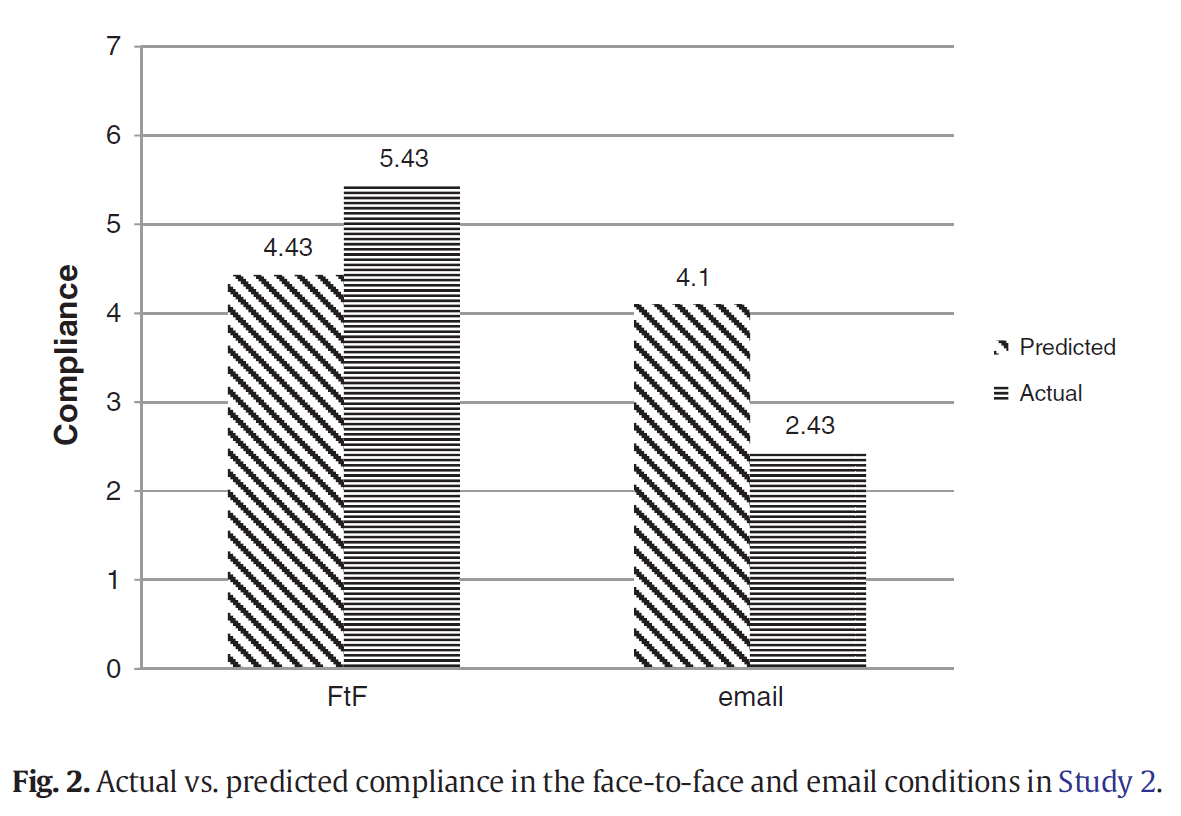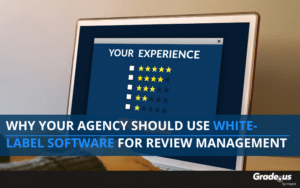You'll have to choose a side.
It's a debate that seems to have no answer. When it comes to selling, which is more effective? Selling online or in-person? It seems there are strong arguments that can be made on both sides.
Who's right here?
Is there a way to firmly and definitively arrive at a satisfying answer?
Let's find out.
Why it's so much better to sell review management online
The reasons are fairly obvious.
You're able to attract more customer attention. You spend far less money on training, transportation and meeting expenses. You're able to reach more customers for less money.

It seems clear then.
Selling online is a much better way to go. All of the points they make are legitimate. Selling online is the future for a growing number of organizations. For all organizations, really. It makes financial sense and it works out to be more profitable in the long run.
So, why aren't more businesses doing it this way?
Because face-to-face selling is superior
It's true.
Vanessa Bohns and Mahdi Roganizad showed that face-to-face requests are 34 times better than impersonal requests made via email.

That's an enormous difference.
This actually makes sense when you think about it. The non-verbal cues we normally use to evaluate others, our body language, gesture clusters, tone of voice, emotional health, etc. These are all missing.
Selling online is impersonal.
As we've seen, the scientific data backs our assertion up here. Face-to-face selling is simply superior. If you're making a request, and you are, then an in-person approach is best here. In fact, selling online is an easy way to lose a sale.
Sellers don't take client requests seriously.
We haven't resolved this debate at all
In fact, we've made it worse!
There's a mountain of data that can be used to support both sides. There are compelling arguments for either option and it seems that we're not really clear on how we should go about approaching this. How should we go about selling review management to clients?
This debate has no end.
Nor should it. Both sides can continue to hammer at each other, using their data to coerce the others into a situation that works best for them.
It's a red herring.
What we're looking at here are really two sides of the same coin. This isn't about which side is better or, easier. It's about identifying the option that will work best for your business.
You and your clients can solve this debate
How are you supposed to do that?
You follow the cues you receive from (a.) your clients in the form of announcements, requests, demands, etc. and (b.) the details in your situation - goals, objectives, fears, frustration, etc.
Your clients exist on a continuum.
1. Hardcore online-only loyalists
2. I could go either way but I prefer online
3. I could go either way but I prefer in-person
4. Hardcore in-person loyalists
1. Hardcore online-only loyalists
These loyalists won't have a problem with you selling review management to them online. They're already acclimated to buying big ticket items online. This isn't anything new for them, provided that the appropriate assurances (e.g. guarantees, warranties, risk reversals, etc.) are in place.
In fact, they expect it.
Attempts to arrange an in-person interview with online-only loyalists are met with distrust.
Online is good enough.
An in-person visit in their eyes may be viewed as an attempt to make up for a deficient product or pressure them into something they don't want to buy.
2. I could go either way, but I prefer online
These clients and their in-person counterpart tend to be agreeable. On the surface, it seems they're open to either option. They prefer online for a variety of reasons, maybe it's more convenient, less personal or they're more introverted.
These clients have a preference.
They may or may not share that preference with you, however. Many of these clients will simply go along with the option you choose. They may resent you for choosing an option that goes against what they want. But they'll go along with it, as long as you're the best option.
3. I could go either way, but I prefer in-person
They're just like the clients above.
But there's a frustrating part about these clients. Many of them are duplicitous rate shoppers. If you're selling to them online, they're reaching out to in-person competitors and haggling for a better rate. If you're an in-person shopper they're reaching out to online providers for a better rate.
Here's the upsetting part.
Often times these rate shoppers have identified the providers they plan on using ahead of time. What does this mean? Their haggling is an attempt to drive down the price considerably.
They want a bidding war.
What if this isn't their goal? These clients are often either (a.) less/unwilling to tell you they'd like an in-person visit or (b.) list in-person visits as a potential deal breaker.
4. Hardcore in-person loyalists
These clients are known by their words.
They'll share requests with specific keywords. These words can be location or role specific keywords:
- Must work on-site
- Available to work in our DC office
- A Chicago native
- Willing to commute
- Looking for a partner we can meet with face-to-face
Unlike our previous two candidates, this client tends to be very upfront about their expectations and demands. If they require a face-to-face meeting they obviously need to let you know.
It's reassuring.
Their clarity is also a wonderful and reassuring thing to have. If you can meet these requirements you're able to move on their request quickly. If you're not able to do that you can disqualify them quickly without wasting your time.
What a minute. What about you?
I did say that you were part of the equation, didn't I?
Absolutely.
There are several factors that determine the strategy you take. These strategies need to be accounted for and balanced appropriately.
Here's what I mean.
1. Dollar amounts and the size of the deal. Selling a $500 per mo. deal is much easier than a $25,000 per mo. or $125,000 deal. If you're operating at the $25,000 level, there will be due diligence.
2. Different rules. $125,000 clients are very, very different from $500 clients. The rules are different. The level of sophistication tends to be much higher. If you're operating at a high level it isn't about online or face-to-face. It's all of the above.
The higher the dollar amount the greater the expectation before, during and after the sale. If you're going after $125,000 clients you'll probably be involved in all of the above. In-person meetings, flights to and from their location. Presentations at yours. Online meetings with decision makers, department heads and influencers.
What do you want?
When you're competing at the highest levels, you're breathing rarified air. This isn't about which one is better, it's a complex mix of disciplines and behaviors.
- Competence hierarchies
- Advanced negotiating
- Combat (e.g. mental, emotional, social)
- Defending your status
- Legal strategies (offense and defense)
Can you see what's happening?
This debate has been a red herring all along
It all depends on you.
You'll need a clear idea of the clients you're pursuing, the deals you're looking for and the results you hope to accomplish. If you're selling review management services you'll need to clarify this for yourself.
If you're...
- Looking to scale online-only is a fantastic way to get to the results
- Going after medium to large deals? Prepare to do whatever it takes – online, in-person, via phone, to secure/win the deal
- Pursuing a combination? You’re going to need to rely on both. You’ll also need to rely on a team that has the appropriate skill sets for both.
See the difference?
See how these tactics can help you win more clients? It isn't about the debate. It's about the tactics that are best for you and your clients.
Is it better to sell review management online or in-person?
This debate doesn't have an end.
There's a firm and definitive way to arrive at a satisfying answer.
Ignore the debate.
You can use a mountain of data to argue for both sides. Want to sell review management successfully to your clients? Your approach is straightforward and clear.
The debate is a red herring.
This isn't about which side is easier. It's about identifying the option that will work best for your business. You and your clients can solve this debate.
It's all about management.
You'll need to manage desires, goals and expectations, yours and your client's. Approach selling with these strategies and tactics and your business will always be on the right side.
About the Author
Andrew McDermott
Andrew McDermott is the co-founder of HooktoWin. He shows entrepreneurs how to attract and win new customers.









